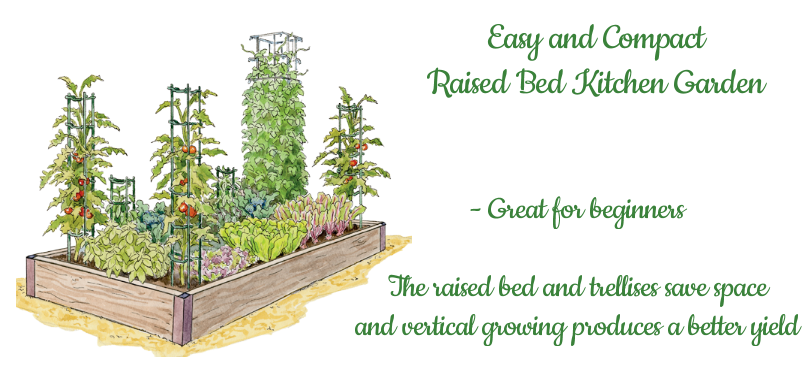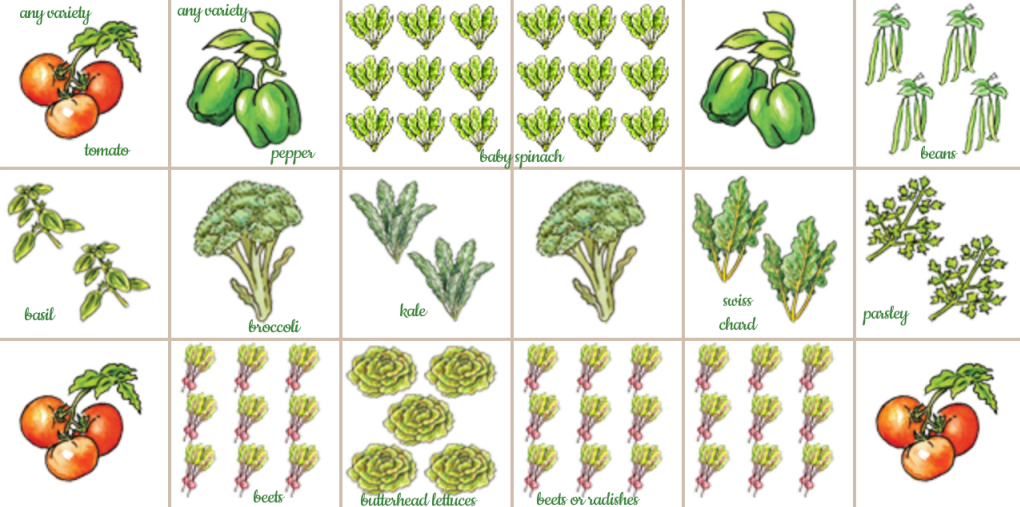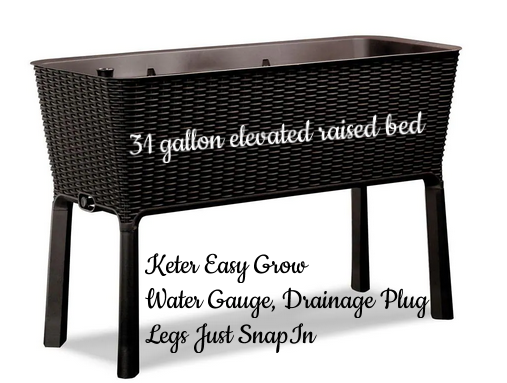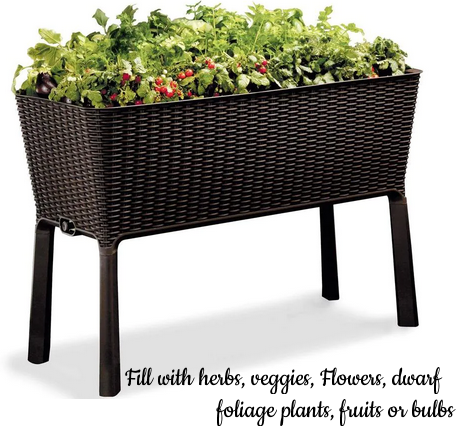 |
Each square on the
diagram is 1 sq. foot.
This suggested layout is for a 3x6 ft. (18 sq. ft.) raised bed.
You can purchase raised planters pre-made, or build your own out of cedar or
resin planks.
You can find the elevated raised bed planters
in most home and garden centers, or online.
I use the cedar raised planters made by Greene's Fence. The pieces just slide
into grooves easily in just a few minutes.
No Tools needed (my favorite).
 |
| Tomatoes, peppers, spinach,
beans, basil, broccoli (I like broccolini), kale, rainbow swiss chard,
italian flat leaf parsley, beets and/or sugar sweet radishes. Plenty of
healthy variety for a family, and it takes up much less space than an
in-ground garden. Just about eliminates the need for eradicating pests
and weeds. Maintenance is much easier, too. Beginners and busy working
people will love the convenience. Place the raised bed on legs for those
gardeners who might have physical limitations. Everyone can get to
garden.
If using on the ground, be sure to pull out weeds and rocks, and lay down landscape fabric to eliminate or at least slow down weeds. Fill the garden bed of your choice with well-draining potting soil (not soil from your garden). Add a bag or two of compost before planting. Trellises keep the tall veggies clean and off the ground, away from pests and rot. More sun and heavier fruit. It looks much prettier and neater, too. Pole or runner beans are excellent climbers. Duplicate the design for a larger garden using the same or different types of veggies. Use several raised beds in whatever design delights your eye. The design is beautiful as a kitchen garden at your back door and on your patio. You can put multiple beds with paths to walk between them, or line 'em up along your fence line. I use raised beds on legs along my white privacy fence to eliminate constant bending and kneeling. It eliminates my constant battle with rabbits. It also gives my fence a lot of character. Flower beds and potted trees are between them. The raised beds come in lots of sizes for your landscaping needs. My favorites along fences and on my patio is 2x4 ft. each. There are large square and round fabric grow bags, too. I like to place a round fabric garden bed between 2 rectangles. These are ground-level and add something else that's beautiful to your borders. If using along a fence line, remember to allow enough space between the planters and the the fence, so that you can reach and tend to the sides and back. You want to allow enough space in back of the planter for the plant to grow to it's full width and diameter, or plant the smaller things front and back and the taller things in the middle. You can place the fabric grow bags in the large elevated planters with soil or other pots between them. Great idea if you want to control the spread of your plants, and easy to move and remove. Use elevated raised beds along fences for an ornamental look and use of all wasted spaces. You can find them with pre-measured grids or you can mark out squares. They can be used for growing all types of gardens. I currently own 15 of these. Many are used as my strawberry patch, butterfly buffets and dwarf varieties of vining vegetables.
Feel free to switch out or eliminate plants and replace with other types with the same growth and production attributes. You can design it any way you like if you prefer a different design. I personalize by using plants i like better. I would grow one plum tomato , one dwarf patio tomato, and one cherry tomato plant instead of 3 of the same type. You can grow broccoli instead of broccolini and any type of kale or chard. I grow a long frying pepper, a dwarf frying pepper, and a sweet/hot Peruvian Pearl Pepper plant for my salads. I grow butterhead lettuce or a constant supply of Mesclun Mix for frequent harvests. Lettuces and cool weather veggies like kale and broccoli can produce 2 crops... one in early spring and one in fall, before the hard freeze. Create a garden filled with what you eat. I sow lettuces for salad greens and cool weather veggies every 2 weeks early spring and in August for a constant crop. I don't sow for the hottest part of the summer (too hot for these plants). I just snip for my salad when I am ready to eat one. Plant your boxes in a way that makes it easiest for you to manage. Don't grow stuff you won't eat just because a plan tells you that you should.
To download a copy of this garden plan in .pdf format, click here.
Design,
graphics, articles and photos ©2020 marysbloomers.com™ |

